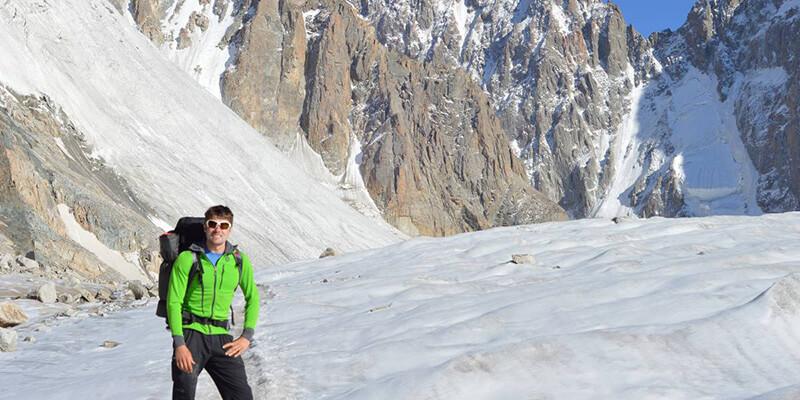At the twilight of my eight-year active duty military career, I was feeling a bit unmoored. Having spent the previous decade of my life always training for the next big challenge in my military career, deciding to bring it to an end to allow my family to settle down and grow roots in a community left me with more questions than answers. What does a Russian-speaking infantry officer with lots of practice jumping out of an airplane and then walking with a really heavy pack for miles through the pitch black night do in the real world? I had but one answer – as terrifying as it was, I had to go back to school.
Two years later, I am a second-year master’s student in the Rubenstein School in the Environment, Society, and Public Affairs track and thoroughly enjoying every moment of my time here. Having grown up immersed in the outdoors in rural Louisiana and later experiencing amazing landscapes as a mountaineer, I believe that the natural world plays an integral part in human society and felt compelled to find my place in preserving our environment for future generations.
When I first enrolled in the Rubenstein School, however, I had only a vague idea of how I would accomplish my goal – somehow merge my military experiences in operations planning, intelligence analysis, and organizational leadership with all of the new knowledge that I knew would come from my master’s work. The specifics were, at best, vague. Yet within my first months of study, pieces started to come together through my various classes, and I eventually found myself, by the end of the first semester, with a clear idea of my work here at the Rubenstein School.
In my military life, I found my niche as a “bridge” between the operations personnel, who created and implemented plans and policy, and the intelligence staff, who focused on research. In my master’s program, I determined to create a project that would implement the amazing research and ideas that I learned in the classroom in an innovative way in the outside world. This idea eventually came to fruition with the plan to create an Ecological Leadership Program for a university in Bishkek, Kyrgyzstan.
The Ecological Leadership Program (ELP), which is based on the “best practices” from outdoor adventure education and environmental education models, will take place in Ala Archa National Park, Kyrgyzstan, August 1 – 13, 2016. Currently, the ELP Program is in its early stages of planning, but we have already made extensive progress in recruiting the Kyrgyz students and preparing an innovative curriculum that blends concepts of Social-Ecological System (SES) theory, ecological economics, and natural science of the Tian Shan mountain region with the intensive leadership experiences of an outdoor adventure education program.
Although the ELP will include elements of my own research to determine whether the curriculum is successful in producing Responsible Environmental Behavior (REB), the true goal of the program is well-beyond simply producing a thesis. Ultimately, I am working to establish a precedent with my partners at the American University of Central Asia for an experiential education program that continues into the future to bring environmental theory into reality for the student participants. The results of the project’s success, I believe, can have positive effects for the Kyrgyz students and their country far beyond our ability to foresee.
